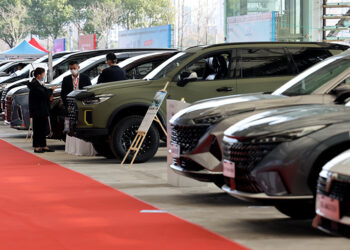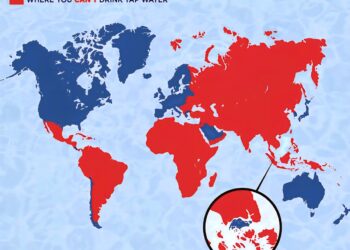Select Language:
The Ultimate Guide to American vs. British English in 2025

Language differences can often lead to confusion, especially when Americans and Brits describe the same things differently. As of 2025, here’s a comprehensive rundown of the most common vocabulary variations between American English and British English, presented as a useful list for travelers, expats, and language enthusiasts alike.
1. Living Spaces: From “Apartment” to “Flat”
In the U.S., individuals live in “apartments,” while across the pond, the same dwelling is called a “flat.” This distinction is fundamental, especially in real estate listings or when navigating housing options.
2. The Elevator and the Lift
A “lift” in Britain is what Americans refer to as an “elevator.” Whether in high-rise buildings or shopping malls, this device moves us between floors regardless of terminology.
3. Sidewalks and Pavements
Walking down the street, Americans step onto a “sidewalk,” whereas Brits call it a “pavement.” Both serve the same purpose but differ linguistically depending on location.
4. Trash vs. Rubbish
Disposing of waste, Americans stash their garbage in a “trash can” or “garbage bin,” while in the UK, the term is “rubbish.”
5. Flashlight and Torch
In emergencies or camping, Americans wield a “flashlight,” but the Brits prefer a “torch.” Both devices illuminate the dark but highlight the differences in language.
6. Pants vs. Trousers
What Americans call “pants” are known as “trousers” in Britain. Clarifying this can prevent embarrassing misunderstandings.
7. Soccer and Football
The global sport known in most of the world as “football” is called “soccer” in America, highlighting an interesting linguistic divergence.
8. Cookies and Biscuits
Sweet treats enjoyed in both countries have different names: “cookies” in the U.S. and “biscuits” in the UK.
9. Vacation and Holiday
Americans take a “vacation,” whereas the British say they are on “holiday.” Both refer to time off work, but local terminology changes.
10. Trucks and Lorries
Transport vehicles are called “trucks” in America and “lorries” in Britain. A key term in logistics and everyday driving.
11. Faucets and Taps
Turning on the water uses a “faucet” in the U.S., but a “tap” in the UK. An essential vocabulary point for travelers and DIY enthusiasts.
12. Diapers and Nappies
Baby essentials vary: “diapers” in America, “nappies” in Britain.
13. Pacifiers and Dummies
A baby’s “pacifier” is called a “dummy” in the UK, highlighting regional differences in baby product terms.
14. Cribs and Cots
A “crib” in the U.S. is a “cot” across the Atlantic—a vital term for new parents in both regions.
15. Strollers and Pushchairs
Child transportation devices: “stroller” in America, “pushchair” in Britain.
16. Candies and Sweets
Sweet, sugary treats are “candy” in the U.S. but “sweets” in the UK, revealing the sweet-tooth vocabulary gap.
17. Jelly and Jam
A fruit spread in Britain is “jam,” whereas Americans sometimes refer to “jelly,” though “jelly” and “jam” have distinct meanings in the U.S.
18. French Fries and Chips
Fried potato strips are “French fries” in America and “chips” in Britain. Conversely, “crisps” in Britain are “potato chips” in America.
19. Gasoline and Petrol
Fuel for cars is “gasoline” or “gas” in the U.S., and “petrol” in Britain.
20. Sweater and Jumper
A warm piece of clothing: “sweater” in the U.S., “jumper” in the UK.
21. Trash Can and Bin
Americans put trash in a “trash can,” while Brits use a “bin.”
22. Mailbox and Postbox
Sending mail? Americans have “mailboxes,” whereas Brits look for the “postbox.”
23. License Plates and Number Plates
Vehicle registration in the U.S. features “license plates,” but in Britain, they are “number plates.”
24. Legal Terms: Attorney vs. Barrister/Solicitor
Legal professionals vary: “attorney” in America, “barrister” or “solicitor” in the UK.
25. Subway and Underground
Public transit: “subway” in the US, “underground” or “Tube” in Britain.
26. Overalls and Dungarees
Workwear in America is “overalls,” commonly called “dungarees” in Britain.
27. Band-Aid and Plaster
For small cuts, Americans use a “Band-Aid,” Brits say a “plaster.”
28. Drugstore and Chemist
Pharmacy concept: “drugstore” or “pharmacy” in the US, “chemist” in Britain.
29. Cell Phone and Mobile Phone
Communicating on the go varies: “cell phone” in the U.S., “mobile phone” in the UK.
30. Closet and Wardrobe
Clothing storage: “closet” in America and “wardrobe” in Britain.
31. Zip Code and Postcode
Mail routing: “zip code” in America, “postcode” in Britain.
32. Eraser and Rubber
Correcting mistakes: “eraser” in the U.S., “rubber” in the UK.
33. Hood and Bonnet
Car parts: “hood” in the U.S., “bonnet” in Britain.
34. Trunk and Boot
The back of a car: “trunk” in America, “boot” in Britain.
35. Movie and Film
Entertainment terms: “movie” in the U.S., “film” in Britain.
36. Sneakers and Trainers
Footwear: “sneakers” in America, “trainers” in Britain.
37. Underwear and Pants
Underclothing: “underwear” generally, but “pants” can be ambiguous; in Britain, “pants” often mean underwear, while in America, it often refers to trousers.
38. Suspenders and Braces
Supporting your trousers: “suspenders” in America, “braces” in Britain.
39. Trash Bag and Bin Bag
Garbage storage: “trash bag” in the U.S., “bin bag” in the UK.
40. Resume and CV
Job application document: “resume” in America, “CV” (curriculum vitae) in Britain.
41. Fall and Autumn
Seasonal terms: “fall” in the U.S., “autumn” in Britain.
42. Period and Full Stop
Punctuation: “full stop” in Britain, “period” in America.
43. Math and Maths
Short form for mathematics: “math” in the U.S., “maths” in Britain.
44. Sweatsuit and Tracksuit
Activewear: “sweatsuit” in America, “tracksuit” in Britain.
45. Lollipop and Ice Lolly
Sweet on a stick: “lollipop” in the U.S., “ice lolly” in Britain.
46. Drape and Curtain
Window coverings: “drape” (less common in America), “curtain” everywhere else.
47. Corn and Maize
The crop: “corn” in America, “maize” in Britain.
48. Parking Lot and Car Park
Vehicle parking areas: “parking lot” in the U.S., “car park” in Britain.
49. Traffic Circle and Roundabout
Traffic navigation: “traffic circle” in America, “roundabout” in Britain.
50. Stove and Cooker
Cooking appliances: “stove” in America, “cooker” in Britain.
This list only scratches the surface of the intriguing differences between American and British English. Familiarity with these terms ensures smoother communication, whether traveling, working, or just enjoying language nuances in 2025. Remember, regional dialects may vary, and modern usage continues to evolve. Always be attentive to context!







